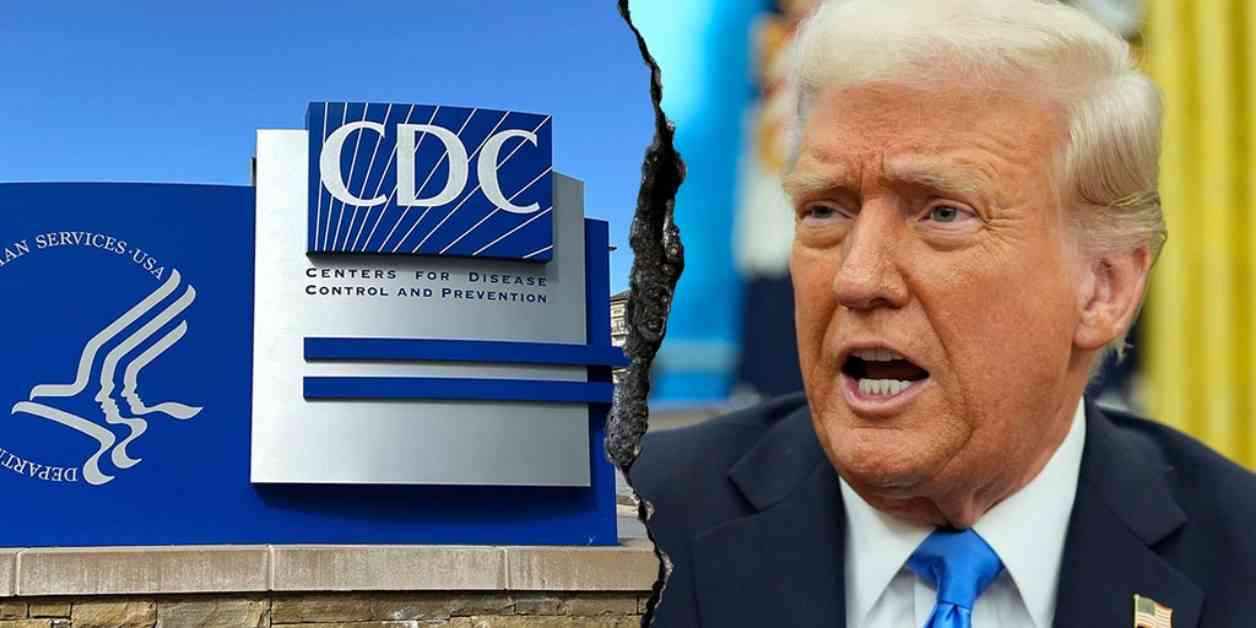The Centers for Disease Control and Prevention (CDC) made headlines recently by participating in a World Health Organization (WHO) vaccine conference, seemingly defying an executive order from President Donald Trump to withdraw the U.S. from the WHO. Despite the directive, the CDC announced its involvement in a biannual conference focusing on the influenza vaccine, organized by the WHO. This decision sparked curiosity and speculation as to how it would play out amidst the political landscape.
Trump’s executive order came shortly after he assumed office last month, citing various reasons for the withdrawal, including the WHO’s handling of the COVID-19 pandemic, lack of necessary reforms, and financial burdens imposed on the U.S. The move to withdraw from the WHO raised concerns and prompted a mixed response from the public and global health experts.
The CDC’s Defiance
The CDC’s decision to participate in the WHO conference raised eyebrows and led to questions about the agency’s autonomy in the face of political directives. Despite the executive order to stop collaborating with the WHO, the CDC chose to engage in discussions about the upcoming influenza vaccine recommendations for the Northern Hemisphere.
In a statement to Fox News, a CDC spokesperson confirmed the agency’s active participation in the WHO’s vaccine consultation meeting for the 2025-26 season. The spokesperson did not provide details on whether the CDC had received an exemption from Trump’s order, leaving room for speculation on the dynamics between the agency and the administration.
Political Backlash and Future Possibilities
The conflicting messages from the Trump administration and the CDC regarding participation in the WHO conference highlighted the complex relationship between public health agencies and political leadership. Trump’s openness to reconsidering U.S. re-entry into the WHO if certain conditions were met added another layer of uncertainty to the situation.
Days after signing the executive order to withdraw from the WHO, Trump expressed a willingness to potentially rejoin the organization, contingent on reforms being implemented. This shift in stance raised questions about the long-term implications of U.S. involvement in global health initiatives and the potential impact on public health outcomes worldwide.
As the WHO responded to Trump’s order with a statement expressing disappointment and urging reconsideration, the global health community awaited further developments in the U.S.’s stance on international health cooperation. The imminent shift in leadership following the presidential transition added complexity to the situation, with former President Joe Biden eventually reinstating U.S. participation in the WHO during his term.
The CDC’s participation in the WHO vaccine conference amidst political turmoil underscored the importance of global collaboration in addressing public health challenges. The agency’s commitment to engaging in discussions on influenza vaccine recommendations demonstrated a dedication to advancing scientific knowledge and promoting international cooperation in the fight against infectious diseases.
As the world continues to navigate the complexities of the COVID-19 pandemic and other health crises, the need for unity and solidarity among nations becomes increasingly evident. The CDC’s decision to participate in the WHO conference served as a reminder of the interconnected nature of global health and the shared responsibility to safeguard the well-being of all individuals, regardless of political differences.
In conclusion, the CDC’s involvement in the WHO vaccine conference amid political tensions highlighted the critical role of public health agencies in promoting international cooperation and advancing scientific research. Despite the challenges and uncertainties surrounding the U.S.’s relationship with the WHO, the commitment to collaboration and knowledge-sharing remains essential in addressing global health threats.


